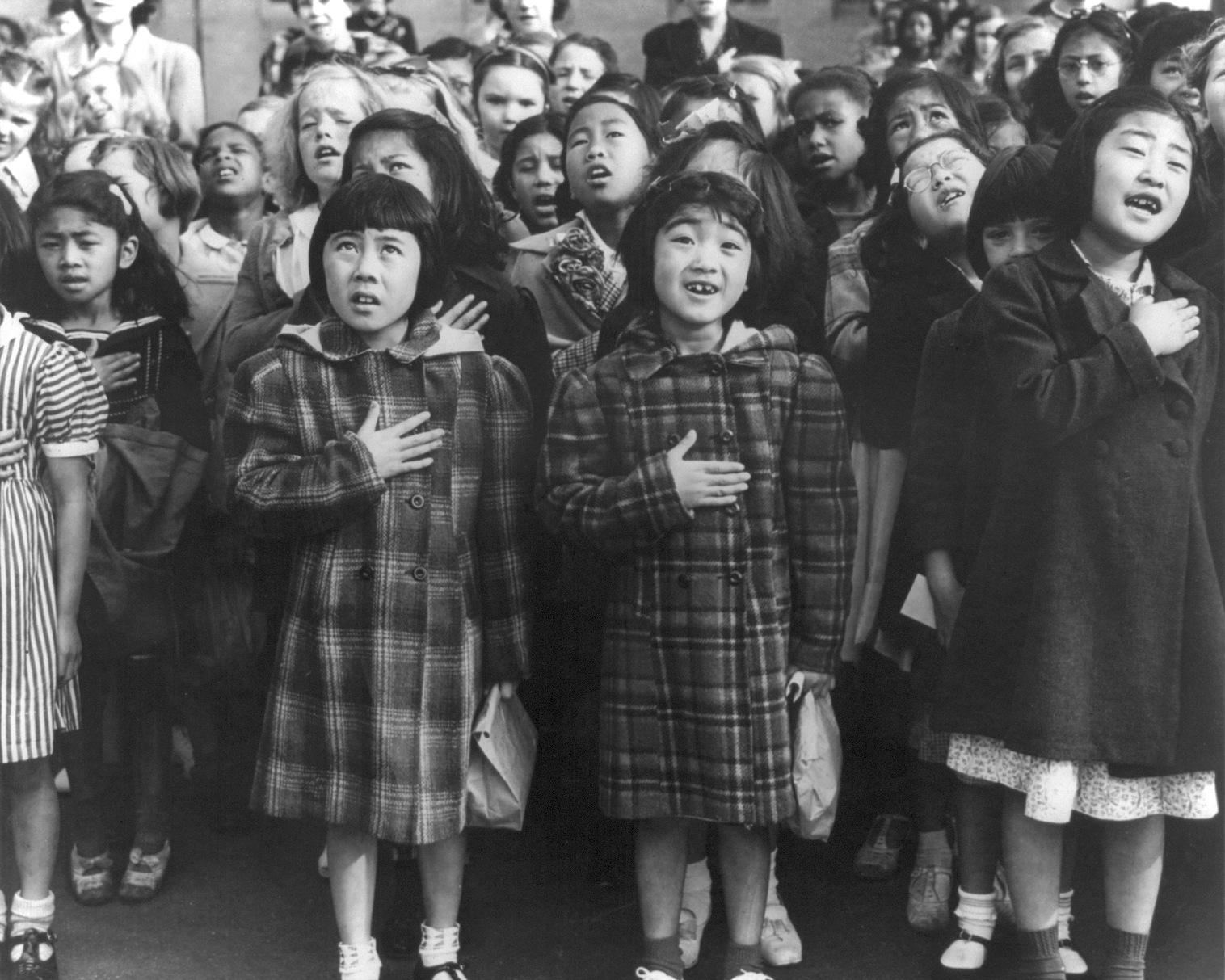Banaler Nationalismus: Unterschied zwischen den Versionen
(removed the bit about kuwait and the falklands, those certainly had nothing to do with nationalism) |
(nationalism certainly was appealed to in both wars, even if they weren't exclusively about nationalism. Anyway, this is the argument he made, whether you agree or not) |
||
| Zeile 5: | Zeile 5: | ||
Examples of banal nationalism include the use of flags in everyday contexts, [[nationalism in sport|sporting events]], [[national anthems|national songs]], symbols on money, popular expressions and turns of phrase, patriotic clubs, the use of implied togetherness in the national press, for example, the use of terms such as ''the'' prime minister, ''the'' weather, ''our'' team, and divisions into "domestic" and "international" news, etc... Many of these symbols are most effective because of their constant repetition, and almost [[subliminal messages|subliminal]] nature. | Examples of banal nationalism include the use of flags in everyday contexts, [[nationalism in sport|sporting events]], [[national anthems|national songs]], symbols on money, popular expressions and turns of phrase, patriotic clubs, the use of implied togetherness in the national press, for example, the use of terms such as ''the'' prime minister, ''the'' weather, ''our'' team, and divisions into "domestic" and "international" news, etc... Many of these symbols are most effective because of their constant repetition, and almost [[subliminal messages|subliminal]] nature. | ||
Michael Billig's primary purpose in coining the term was to clearly differentiate every-day, endemic [[nationalism]] from extremist variants. He argued that the academic and journalistic focus on extreme nationalists, [[Separatism|separatist]] movements, and [[Xenophobia|xenophobe]]s in the 1980s and 90s obscured the modern strength of nationalism, by implying that it was a fringe ideology. He argues that the "hidden" nature of modern nationalism makes it a very powerful ideology, partially because it remains largely unexamined and unchallenged, yet remains the basis for powerful political movements, and most political violence in the world today. However, in earlier times calls to the "nation" were not as important, when religion, loyalty, or family might have been invoked more successfully to mobilize action. He also uses the concept to dispute [[post-modernist]] claims that the [[nation-state]] is in decline, noting particularly the continued [[hegemony|hegemonic]] power of [[American nationalism]]. | Michael Billig's primary purpose in coining the term was to clearly differentiate every-day, endemic [[nationalism]] from extremist variants. He argued that the academic and journalistic focus on extreme nationalists, [[Separatism|separatist]] movements, and [[Xenophobia|xenophobe]]s in the 1980s and 90s obscured the modern strength of nationalism, by implying that it was a fringe ideology. He noted the almost unspoken assumption of the utmost importance of the nation in political discourse of the time, for example in the calls to protect Kuwait during the [[1991 Gulf War]], or the [[Falklands War|Falkland Islands in 1982]]. He argues that the "hidden" nature of modern nationalism makes it a very powerful ideology, partially because it remains largely unexamined and unchallenged, yet remains the basis for powerful political movements, and most political violence in the world today. However, in earlier times calls to the "nation" were not as important, when religion, loyalty, or family might have been invoked more successfully to mobilize action. He also uses the concept to dispute [[post-modernist]] claims that the [[nation-state]] is in decline, noting particularly the continued [[hegemony|hegemonic]] power of [[American nationalism]]. | ||
==References== | ==References== | ||
Version vom 24. November 2009, 22:02 Uhr

Banal nationalism refers to the everyday representations of the nation which build an imagined sense of national solidarity and belonging amongst humans. The term is derived from Michael Billig's 1995 book of the same name. Today the term is used primarily in academic discussion of identity formation and geopolitics.
Examples of banal nationalism include the use of flags in everyday contexts, sporting events, national songs, symbols on money, popular expressions and turns of phrase, patriotic clubs, the use of implied togetherness in the national press, for example, the use of terms such as the prime minister, the weather, our team, and divisions into "domestic" and "international" news, etc... Many of these symbols are most effective because of their constant repetition, and almost subliminal nature.
Michael Billig's primary purpose in coining the term was to clearly differentiate every-day, endemic nationalism from extremist variants. He argued that the academic and journalistic focus on extreme nationalists, separatist movements, and xenophobes in the 1980s and 90s obscured the modern strength of nationalism, by implying that it was a fringe ideology. He noted the almost unspoken assumption of the utmost importance of the nation in political discourse of the time, for example in the calls to protect Kuwait during the 1991 Gulf War, or the Falkland Islands in 1982. He argues that the "hidden" nature of modern nationalism makes it a very powerful ideology, partially because it remains largely unexamined and unchallenged, yet remains the basis for powerful political movements, and most political violence in the world today. However, in earlier times calls to the "nation" were not as important, when religion, loyalty, or family might have been invoked more successfully to mobilize action. He also uses the concept to dispute post-modernist claims that the nation-state is in decline, noting particularly the continued hegemonic power of American nationalism.
References
- Billig, M. (1995). Banal Nationalism. London: Sage Publications.
